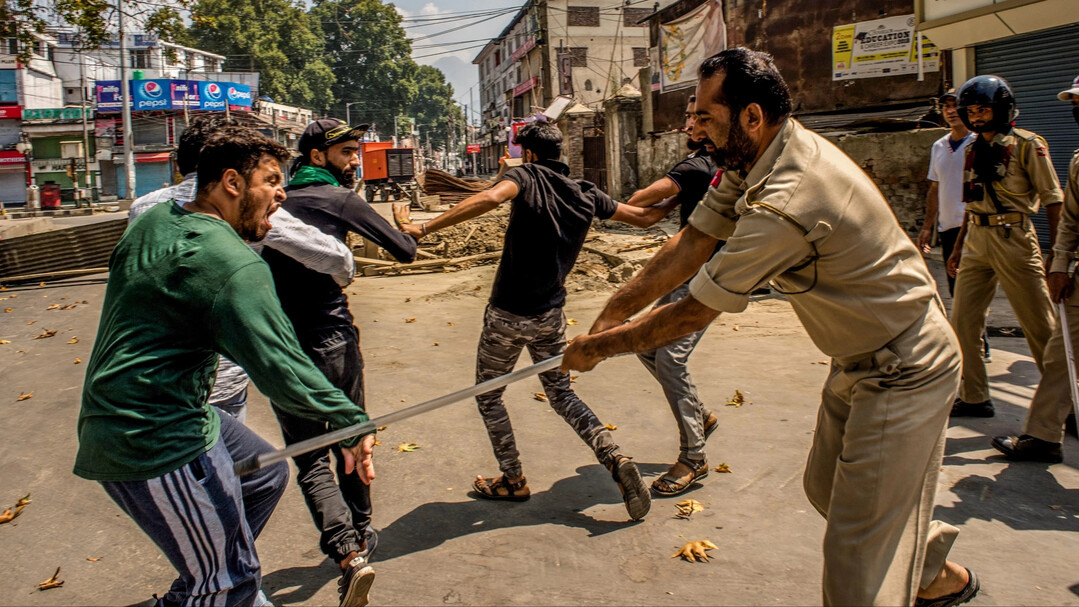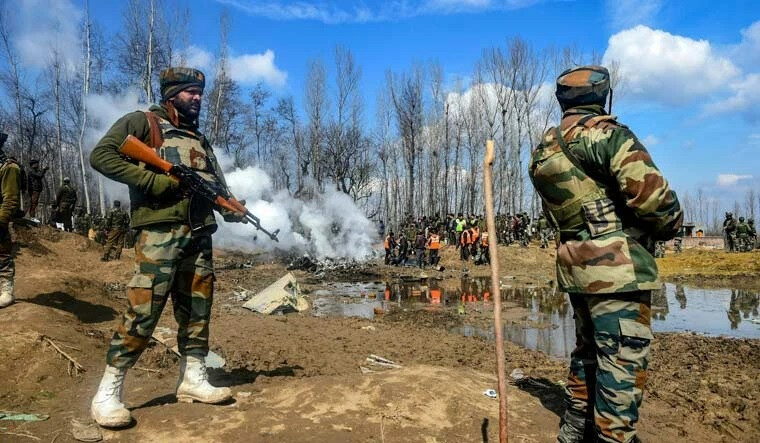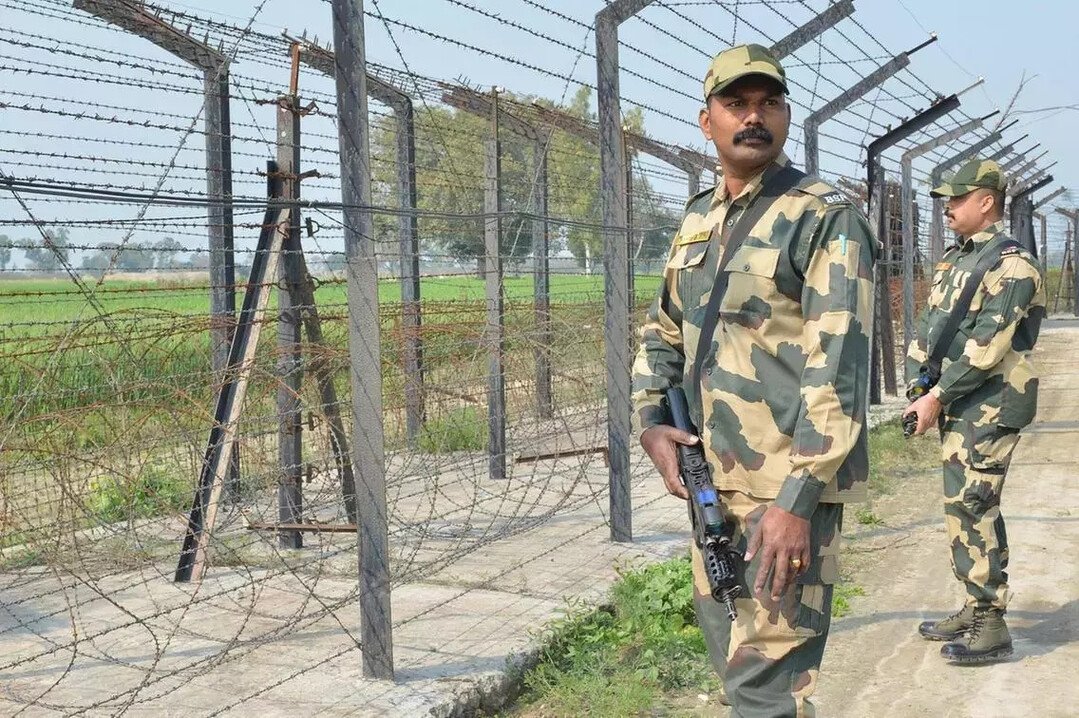
Bucheon, South Korea - The volatile Kashmir region, a flashpoint of contention between India and Pakistan for nearly eight decades, has once again erupted in intense military exchanges, sparking international alarm. The recent move by the Indian government to consolidate its direct control over the entirety of Kashmir has further inflamed already strained relations, pushing the nuclear-armed neighbors closer to the brink. Adding to the complexity, the region's strategic location as the source of the Indus River, a vital water artery, has drawn China into the territorial dispute, creating a precarious and unpredictable dynamic.
The latest escalation saw a violent exchange on May 8th, with both Indian and Pakistani forces launching missile strikes and artillery barrages, reportedly resulting in a staggering toll of over 157 casualties. India reported 12 fatalities and 57 injuries on its side, while Pakistan's figures stood at 31 dead and 57 wounded. This surge in violence was triggered by an Indian airstrike on May 7th targeting what it claimed were militant hideouts in nine locations across Pakistan-administered Kashmir. An Indian Defense Ministry spokesperson asserted that the "precise strikes" targeted terrorist cells planning attacks and were not aimed at Pakistani military installations, emphasizing a lack of intent to escalate.
Islamabad vehemently refuted this account, labeling the Indian action a blatant act of aggression. The Pakistani government stated that Indian missiles struck five regions, including Kashmir and Punjab, resulting in the deaths of three civilians, including children, and injuring 14 others. In a retaliatory move, Pakistan claimed its forces targeted Indian positions and even shot down two Indian fighter jets, further raising the specter of a wider conflict.
These recent hostilities are rooted in a deadly gun attack on April 22nd in Indian-administered Kashmir, where tourists near the popular resort of Pahalgam were targeted, leaving 26 dead and 17 injured. New Delhi swiftly accused Islamabad of orchestrating the terror attack, vowing strong retribution and subsequently suspending visa issuance for Pakistani nationals and halting all bilateral trade.

Decades of Discord: India's Unilateral Move Deepens Historical Divide
The roots of the Kashmir conflict stretch back to the 1947 partition following independence from British rule. The former princely state of Jammu and Kashmir, ruled by a Hindu elite over a predominantly Muslim population, became a point of contention as the subcontinent was divided into Hindu-majority India and Muslim-majority Pakistan. While the rulers favored joining India, the majority of the populace desired to align with Pakistan, igniting a protracted and bloody dispute. Since then, the two nations have engaged in three full-scale wars and numerous smaller conflicts over the region's sovereignty.
A significant turning point came in August 2019 when India unilaterally revoked Article 370 of its constitution, stripping Kashmir of its special autonomous status and declaring the entire region a union territory under direct federal control. This move, perceived as an abrogation of Kashmiri rights and a direct imposition of Indian rule, incited fierce resistance from separatist groups within Kashmir who advocate for union with Pakistan. These groups have since intensified their attacks on Indian security forces, further destabilizing the region.

Water Wars Loom as Geopolitical Chessboard Intensifies
Beyond territorial claims, the control of vital water resources is a critical factor fueling the Kashmir conflict. The region serves as the headwaters of the Indus River, the lifeblood for agriculture and sustenance in both western India and across Pakistan. Securing Kashmir offers control over this crucial water supply, a strategic imperative neither nation can concede.
The involvement of China since the 1960s has added another layer of complexity to the Kashmir imbroglio, transforming it into a delicate geopolitical dance involving three nuclear powers. Following a border war with India in 1962, China occupies and claims sovereignty over the Aksai Chin region in eastern Kashmir. In the current scenario, Beijing has seemingly aligned itself with Pakistan, a key partner in its Belt and Road Initiative, exerting pressure on India while also calling for de-escalation through dialogue.
In a move that has sharply escalated tensions over water resources, India has reportedly begun blocking the flow of the Chenab River, a major tributary of the Indus flowing into Pakistan, since May 5th. The Baglihar Dam, built by India on the Chenab, has allegedly had its gates closed, halting the water flow downstream. Furthermore, similar measures are reportedly planned for the Kishanganga Dam, another Indus tributary, drawing strong condemnation from Pakistan.
Islamabad reacted swiftly and angrily to India's actions, declaring any attempt to "seize, block, or divert water from the Indus River basin" as a "clear act of war." Pakistan vowed to "respond with full force, mobilizing all available capabilities."
India's unilateral actions are seen as a direct violation of the 1960 Indus Waters Treaty, brokered by the World Bank, which guarantees Pakistan's rights to the use of the Indus River and its tributaries and prohibits India from unilaterally altering or blocking its flow. This move is likely to trigger international legal challenges and further poison already toxic bilateral relations.
As the protracted conflict shows no signs of abating, China's growing involvement adds a layer of unpredictability to the Kashmir equation. On April 28th, Chinese Foreign Policy Chief Wang Yi expressed Beijing's understanding of Pakistan's "legitimate security concerns" and support for its sovereignty and security interests during a call with Pakistani Deputy Prime Minister Ishaq Dar. He also urged both India and Pakistan to exercise restraint and seek stability through dialogue. This suggests a dual approach from China: strengthening its strategic partnership with Pakistan while simultaneously advocating for regional de-escalation.
Ultimately, the Kashmir conflict transcends a mere territorial dispute, evolving into a multifaceted struggle for vital water resources and complex geopolitical advantage. The precarious standoff between three nuclear-armed nations carries the constant threat of unpredictable military escalation, demanding sustained international attention and concern. Concerted international mediation efforts, coupled with a genuine commitment to dialogue and compromise from all parties involved, are urgently needed to forge a path towards a peaceful resolution.
[Copyright (c) Global Economic Times. All Rights Reserved.]






























